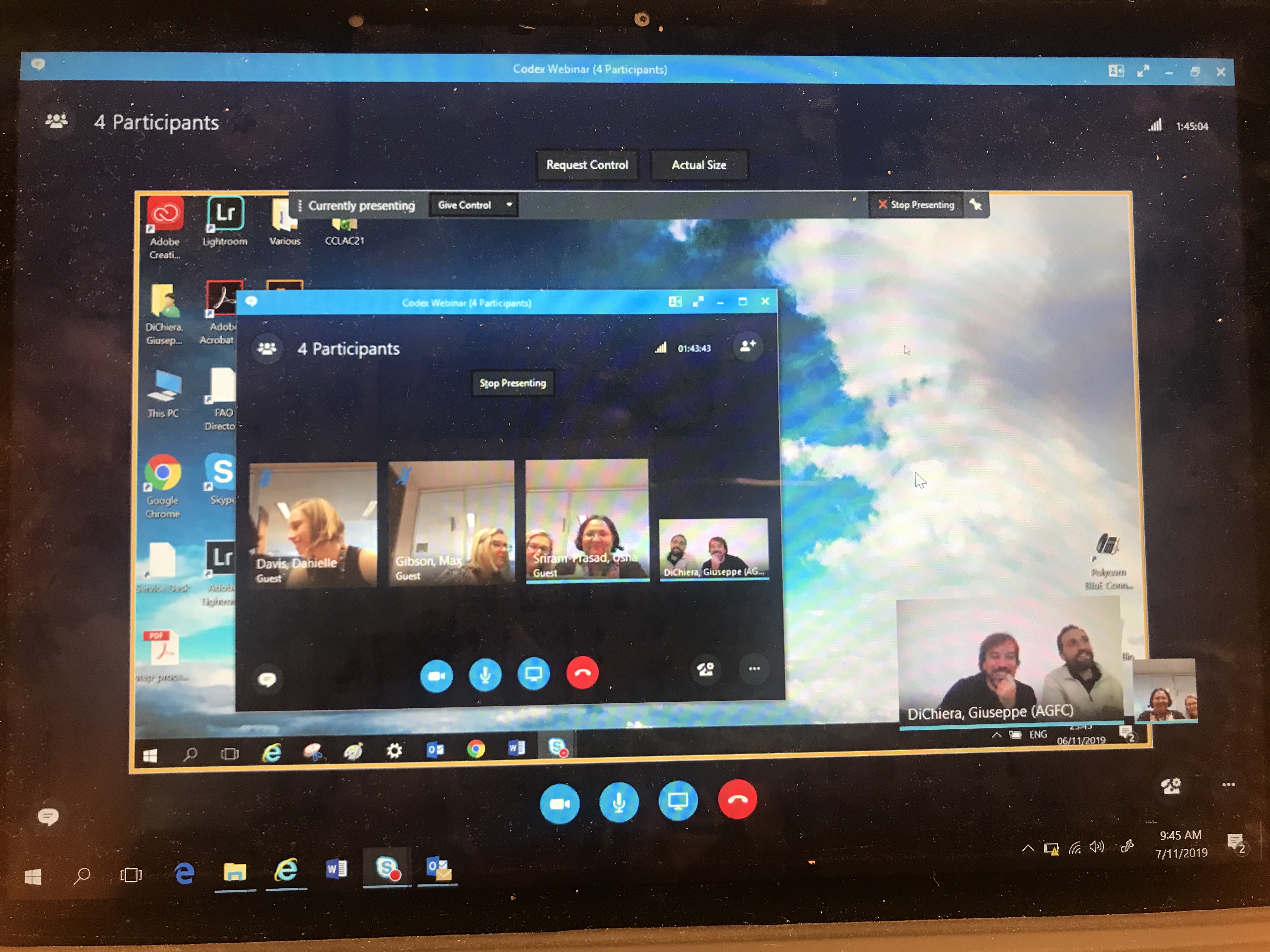The CCNASWP Region
Regional Coordinator Fiji
The 18th session of the Codex Alimentarius Commission, held in 1989, agreed to establish a new Coordinating Committee for North America and the South West Pacific, bringing together, in the words of the New Zealand delegation "far flung countries ... which have many common interests".
CCNASWP is a remarkably diverse region combining fully mature economies such as the USA, Canada, Australia and New Zealand with 10 small island states. The largest of these is Papua New Guinea (population over 7 million) and the smallest, the Cook Islands and Nauru with populations of around 10 000.
The regional coordinator is based within the Fijian Ministry of Agriculture.
Fiji looks forward to applying standards at the national level and supporting all countries in the region, especially the small island developing states, to establish a sound policy framework for food safety. These initiatives will support improvements in public health, ensure that imported food is safe and of the expected quality and develop increased access to international markets.
The regional coordinator will continue supporting work on regional standards and seeks to strengthen participation of the region in Codex in general. This can be achieved by continuing to develop capacity at the national level by enhancing the role of national coordinators and contact points for increased and effective participation in Codex.
CCNASWP Coordinator
All information on Codex is public and free.
For regional enquiries contact:
CCNASWP Secretariat
Ministry of Agriculture
Private Mail Bag
Hugh Robinson Complex
Raiwaqa,
Suva.
Email: [email protected]
Web: www.agriculture.gov.fj
Codex online training: Australia investing time to boost efficiency
With new staff constantly rotating through the 189 Codex Contact Points (CCPs) around the globe, bringing a national Codex team’s skill set up to date is an essential part of a CCP’s duties if comments on Codex texts by national experts are to be submitted online and on time.
The Codex Secretariat recently delivered a webinar training on electronic working groups (EWGs) and the online commenting system (OCS), catching the Australian team early in the morning just as in Codex HQ in Rome, Italy the day was drawing to an end.
We asked Usha Sriram-Prasad, CCP for Australia, based in the Department of Agriculture for her thoughts on the online learning experience.
Q. How does working online in Codex fit with your general methods of working and organization in Australia?
In Australia we seek comments from a number of stakeholders to inform Australian positions on Codex. While there may be the occasional face to face meeting, this input is generally sought electronically. Therefore in Australia we are familiar with using online methods to pull together information. Some of the challenges we currently have is getting the information in a format that can be efficiently loaded on to the OCS. We are looking forward to using the new OCS system to gain further efficiencies, particularly through the full use of the licenses we have available.
Q. What special skills are required in a CCP to be able to deal with EWGs and OCS?
In our experience, good coordination skills to pull together information from various sources as well as patience and proficiency in using technology are the key skills to navigate the EWG and OCS platforms.

Australian Codex Contact Point online training with the Codex Secretariat (bottom right)
Q. How useful was the webinar?
We found the webinar very useful as it allowed us to be trained as a team. It also provided an opportunity to ask practical questions as we were guided through the online systems. Using technology to enable us to share screens and see each other in real time made a huge difference, it was almost as good as being physically in the same place. Our heartfelt appreciation to our Codex Secretariat colleagues for staying up late to allow us to do this training at a convenient time for us.
Q. Why do you think is important to speak the language of Codex?
The work of Codex is vast and complex. Codex members having a common understanding of the tools and systems within the Codex machinery, i.e. a common Codex language, enables effective and efficient engagement in Codex.
Q. What advice would you give other countries in order to manage their Codex work effectively?
While not having mastered their use yet, having seen the efficiencies that can be gained using all our OCS licenses, we would definitely advise other countries to do so too. Also, while recognising that most CCPs have time and resource constraints, investing some time in training in the initial stages will reap much benefit in the long run. So we would encourage colleagues around the world to take advantage of the training that our Codex Secretariat team so generously provide.
Read more
Discover the Codex online commenting system (OCS) on the website
Check which Codex texts are currently out for comments on the circular letters page







Leave a comment